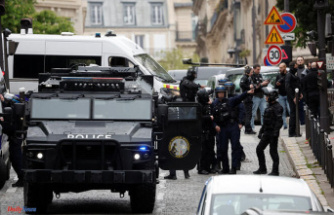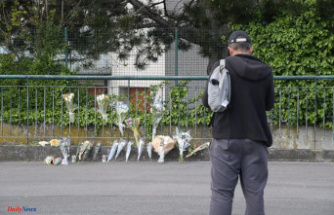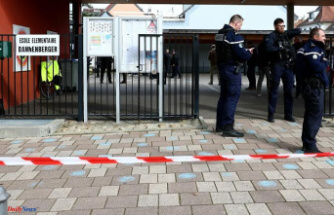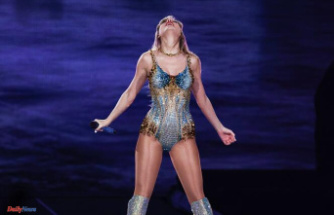Xi spoke at a celebration held in Beijing's Great Hall of the People. It focused mainly on the need for the ruling Communist Party (RCP) to continue leading China as it rises in power.
"Reunification must be realized, it will definitely be realized," Xi said to a crowd of politicians, military personnel, and others gathered in the hulking chamber, which serves as China's ceremonial legislative seat.
The leader stated that a peaceful reunification is in the best interest of the Chinese nation, which includes Taiwan compatriots.
Xi's comments came days after the Chinese military flew a record number military planes towards Taiwan in exercises the island considers a threat. The mainland People's Liberation Army flew fighter, bomber, and airborne early warning aircraft to Taiwan 149 times over four days.
In 1949, Taiwan and China were divided by civil war. The then-ruling Nationalist Party fled to Taiwan as Mao Zedong's Communists took power on the mainland.
Saturday's ceremony was held in Beijing to commemorate the 110th anniversary of China's revolution which saw the overthrow of Qing emperors and the founding of the Republic of China. Xi spoke about common goals for a united future, despite stark differences between China and Taiwan's multi-party democracy.
This year's Taiwanese National Day celebrations will include a rare display and performance of military equipment including missiles, as well as a performance of fighter jets. The event will be held in front of Taipei's Presidential Office Building.
This marks the first time military hardware has been included in Taipei's official celebrations for many years. It also marks the first appearance of military hardware since Taiwanese President TsaiIng-wen assumed office in 2016.
Local media coverage showed large missile launch vehicles driving through Taipei streets during rehearsals for the celebration, but the missiles were not visible directly.
Kuo Yu-jen (defense studies expert at the Institute for National Policy Research, Taiwan) stated that Taiwanese authorities have kept their missile capabilities secret from the public in the past to avoid being perceived as provocative.
Kuo said that Taipei believes it can "deter China's threats" if Beijing becomes "overly assertive."
The national day celebrations have featured overflights by the air force and choreographed motorcycle-riding military police. But missiles weren't part of this display.
Fan Shih-ping, a professor in political science at National Taiwan Normal University, stated that "I believe this is to increase Taiwan's people’s morale."
Tsai, Taiwan's leader, has put a greater emphasis on national defense than her predecessor from China-friendly Nationalist Party. She launched a revival of Taiwan's shipbuilding industry and commissioned a program to build domestic submarines. Tsai has also introduced reforms to the military, such as improving the benefits of military personnel and increasing the quality food served at messes.
Chiu Kuocheng, Taiwan's Defense Minister, told lawmakers Wednesday that China's situation was "the most severe" in the 40 years since he enlisted. He also stated that China will have "comprehensive capabilities" to invade Taiwan by 2025.
Taiwan is now self-governing, but Beijing denies Taiwan sovereignty. Beijing has also refused to give up the right to use force to take the island under its own control. Beijing also tried to isolate Taiwan internationally, barring it from the United Nations, other international organizations, and opposing official contact between its government with nations that recognize China, particularly the United States. This is because the law requires the United States to treat threats against Taipei as a matter "grave concern."
Officials from the U.S., Japan and other countries have warned that China's increasing capabilities pose a growing threat to Taiwan's security as well as that of the region.
Xi stated that the Taiwan issue is purely China’s internal matter and will not tolerate any external interference. "No one should underestimate China's determination, will and ability to protect national sovereignty and territorial integrity.












